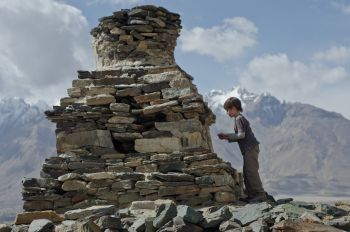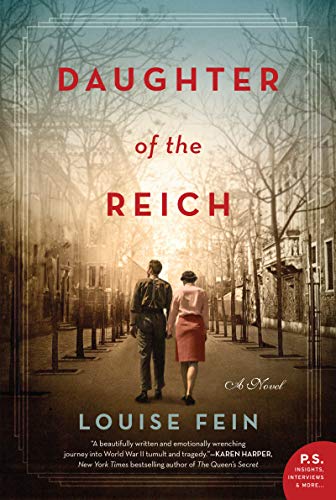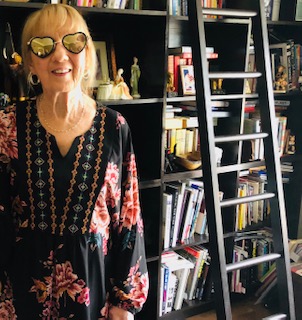
My chat with wilderness writer and adventurer photographer, Bruce Kirkby, made me feel like I was hanging off the sail of a kite board, riding a wind gust at seventeen knots.
 Bruce Kirkby
Bruce Kirkby
My chat with wilderness writer and adventurer photographer, Bruce Kirkby, made me feel like I was hanging off the sail of a kite board, riding a wind gust at seventeen knots.
I kind of like that feeling.
“The one thing that I was blessed with, that has allowed me to follow the path that I am on, is a lack of need for security, a lack of need for certainty as to what comes next. This has allowed me to follow my passion, to leave a well-paid job as an engineer when I was still in my twenties. We tend to cling tight to security these days and if someone is able to cultivate that feeling of going for it, I consider it a blessing, a super power,” Kirkby says.
Kirkby’s love for wild places and wild people, (maybe that’s why we got along), has been the foundation of his career, one that his wife Christine shares and supports. In his new book, Blue Sky Kingdom: An Epic Family Journey To The Heart Of The Himalaya, (Douglas &McIntyre, August 2020), Kirkby shares his experiences and challenges, as well as the ultimate impact of the 100-day journey on Christine, and their two sons, Bodi, (who was seven-years-old at the time of the 2014 trip and had been diagnosed with autism spectrum disorder), and the gregarious three-year-old Taj, who is now seven.
 The Kirkby family
The Kirkby family
While Blue Sky Kingdom is a story of adventure, one that involves canoes, a cargo ship, a riverboat, trains and eventually a traverse of the Himalaya by foot, it is also an intriguing read on a family’s day-to-day handling of new and completely unfamiliar experiences, on a physical, emotional, and spiritual basis. Going from a life immersed in iPhones, tablets, and the instant gratification of modern life, the family’s trek to their eventual destination – a thousand-year-old Buddhist monastery in Karsha Gompa, in Northern India – was a complete 360. After much gesturing and behind-the-scenes negotiation, the details of which Kirkby still isn’t clear about, the family, once in Karsha Gompa, were billeted in a hobbit-sized mud-brick home which the adult Kirkbys entered by bending in half at the waist. Their host, the Lama Wangyal, was enthralled by the family, making them touchingly welcome by gifting them with new names: Tashi, Norbu, Angmo and Mortub.
One of the traits that a person on the autism spectrum often has is the need to have structure, and a need for things to be recognizable, organized, consistent, the same. So you would think that a trip of this magnitude, with all of the travel and unfamiliarity of cultures, destinations and accommodations, would have been highly stressful, if not somewhat or completely unimaginable. But Kirkby’s intrepidness is one that also embraces the personal. Moving on from the initial feelings of shock, fear and a quiet sense of embarrassment that Christine and Bruce first felt after they received Bodi’s diagnosis, the couple are now open about his condition in hopes that it will help lower the stigma.
“In general one of the interesting things about travelling is the fact that there is an extraordinary amount of structure hidden within the chaos,” Kirkby says. “We sleep together; we eat together, and this acts as an anchor for the family.”
Among the myriad of cool anecdotes that Kirkby shares is one that pertains to the relationship that Bodi and Taj developed and deepened while on the Himalaya trip. “Taj is cute and blond and gregarious,” Kirkby says. “And we found that Asian people were not shy to come right up to us, in our case picking up Taj and generally making a fuss over him. Eventually it became too much for him. But then an extraordinary thing happened. Bodi, who doesn’t like attention, became a shield for his brother, stepping in front of him and offering himself up for photos.”
 Bodi blowing bubbles with friends in Karsha Gompa
Bodi blowing bubbles with friends in Karsha Gompa
Extraordinary is a word that Kirkby uses several times throughout our conversation, a punctuation mark of enthusiasm that propels you along for the ride. Interestingly however, is the way Kirkby describes (to me) his family’s journey to the Himalaya. It is one that is couched in terms of deepened relationships, deepening family bonds, and poignant experiences shared, rather than the outsized majesty of the scenery that surrounded them. (Kirkby does of course paint those marvellous scenic backdrops in the book).
The experience of the journey was grand, as you can imagine. But what stands out for Kirkby is the distractions that were stripped away, replaced with the attention that was paid to each other and to the world around them. “For a time we were insulated from all of the craziness around us,” he says. “I remember the journey as peaceful, beautifully genuine, warm and relaxed. We were a family of four magnets moving ever closer together.”
 Bodi leaves an offering on a chorten outside Karsha village.
Bodi leaves an offering on a chorten outside Karsha village.
While Blue Sky Kingdom is a book about a spectacularly unique family journey, (don’t worry- it is not a granola-filled new age Om kind of read), its fundamental message is centred on being present, on listening to each other, on recognizing the personal addictions to distraction. And of course, the innate message that is always close to Kirkby’s raisons d’être: that of living life with meaning, and spiritedness, and gusto and adventure.
“Don’t put off for later what matters to you now. That is the essence of how I live my life,” Kirkby says.

For his next adventure, Kirkby plans, (depending on COVID) to take his family on a year-long surfing adventure, a sport that he says represents an incredible beauty in his life. Africa, South America, Costa Rica and New Zealand are destinations under consideration.
In the meantime, as we (all) hunker down into another long winter of social distancing, Blue Sky Kingdom makes for a solid adventure read, one that might give stressed parents some hope and inspiration as they go stir crazy thinking of ideas to entertain their kids during what seems like a never-ending series of lockdowns.

If you are not a subscriber to Cece’s Ultimate Guide to The Written Word you can do so right here, right now so that next week you can meet Louise Fein, the U.K. author whose first novel, Daughter of the Reich, is garnering rave emotional reviews. Fein shares with Cece the inspiration behind her novel, one that was motivated by Fein’s family history as well as the alarming parallels she sees between the early 1930s and the political and cultural events of today.
 As I bid you adieu for another week, dear readers, I leave you with some deliciously descriptive phrases from some of my favourite books:
As I bid you adieu for another week, dear readers, I leave you with some deliciously descriptive phrases from some of my favourite books:
‘She could decorate it with whatever illusions she had left.’
‘He is a wire coat hanger of a man, thin and twisted, and bent out of shape.’
‘She had a charisma bypass’
Send me a note and let me know who your favourite author is, as well as your fav book. Who knows – you might meet your author bestie on this very blog.

Not a subscriber? Sign up now to get access to Cece’s interviews with popular, adventurous, intriguing, fun, famous, authors…not to mention great book themed gift ideas.
Cece is the feature cover writer for several prestigious publications both in print and online, and an informed, connected and enthusiastic book blogger at cecescott.com
Her first book, The Love Story, was published in 2019. Her second book will be coming out late 2020.
Cece is also working on a book of Daily Reflections for AutoImmune Conditions.


